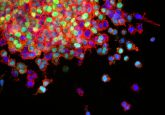ASCO18: MSI-H tumor patients more likely to have Lynch Syndrome, genomic study demonstrates

A genomic study of more than 15,000 tumor samples, led by researchers at Memorial Sloan Kettering Cancer Center (NY, USA), demonstrates that patients with tumors that have high microsatellite instability (MSI-H) are more likely to have Lynch syndrome.
Among individuals with MSI-H tumors, 16% were subsequently found to have Lynch syndrome. Additionally researchers managed to link several new cancers to the syndrome.
Lynch syndrome is a hereditary condition that increases a person’s risk of developing several different types of cancer. The hallmark of Lynch syndrome-associated tumors is MSI-H. MSI is a genomic marker that points to a defect in a cell’s ability to repair DNA.
Researchers used a comprehensive genomic test termed MSK-IMPACT to analyze over 15,000 tumor samples collected from patients with more than 50 different types of advanced cancer. Additionally, the researchers tested blood samples for inherited mutations in genes involved in DNA repair. Tumors caused by Lynch syndrome have mismatch repair deficiency (MMR-D) and are MSI-H.
The tumor samples were classified into three groups: MSI-stable (MSS, no MSI instability found), MSI-indeterminate (MSI-I, moderate level of MSI) and MSI-H. The majority of tumors (93.2%) were found to be MSS; 4.6% were MSI-I; and 2.2% were MSI-H.
Nearly 50% of patients with MSI-H/MSI-I tumors who were identified as having Lynch syndrome had cancer types rarely or not previously linked to the syndrome. These included mesothelioma, sarcoma, adrenocortical cancer, melanoma, prostate and ovarian germ cell cancer.
Moreover, 45% of these participants did not meet Lynch syndrome genetic testing criteria based on family or personal cancer history. Therefore the authors suggest that Lynch syndrome is linked to a wider spectrum of cancers than previously thought and that MSI-H/MMR-D is predictive of Lynch syndrome, regardless of cancer type.
Finally, 57 MSI-I/MSI-H tumor samples were tested for abnormal DNA repair proteins. Interestingly MMR-D was discovered in nearly all (98.3%) of those tumors. These findings importantly highlight that hereditary genetic testing for Lynch syndrome should be performed if either MSI-H or MMR-D is found in the tumor.
“Our findings suggest that all patients with MSI-H tumors should be tested for Lynch syndrome, regardless of cancer type or family or personal history of cancer,” concluded senior author, Zsofia Kinga Stadler (Memorial Sloan Kettering Cancer Center). “Diagnosing Lynch syndrome gives us the unique opportunity of helping not only our cancer patients, but also at-risk family members, as their cancer risk can be lowered through increased cancer surveillance and, in some cases, preventive surgery.”





